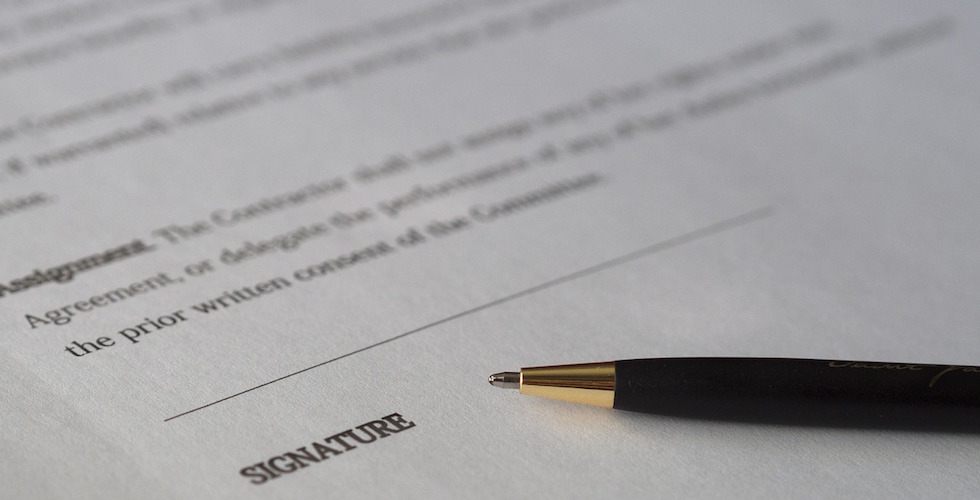
STEP TWELVE: CLOSING TITLE
07/24/2017
STEP ELEVEN: PREPARING TO CLOSE
07/25/2017 STEP NINE: NAVIGATING THE HOME PURCHASE CONTRACT
STEP NINE: NAVIGATING THE HOME PURCHASE CONTRACT
The contract specifies the terms of the sale and the rights and obligations of the buyer and the seller. A well-written document protects both parties, while a poorly drafted contract can cause serious problems.
- Get it in Writing
Oral agreements are usually difficult or impossible to enforce, so if you’ve negotiated your purchase verbally make sure to have contracts signed as soon as possible. - Attorney Review
Always make sure that any contract you sign has an attorney review clause that allows you time (at least three business days – preferably five) to review the document and have it checked out by your lawyer if you feel it is necessary. Many states specify a mandatory review period, whether it is specified or not, but don’t take any chances – make sure it’s in writing. This gives you the chance to make sure all bases are covered before you are committed. - Choose an Attorney or Escrow Company
In some areas it is standard practice to retain an attorney to handle the closing. In others the norm is to have the title or escrow company handle the transaction. If you do hire an attorney, try and find someone local who specializes in real estate closings. An experienced real estate attorney can help you move quickly to closing and sidestep any problems or oversights. If you are using an escrow company, make sure that they have a solid track record. - Cover All Contingencies
Make sure that the contract covers all contingencies of the purchase and allows sufficient time for any required activities or testing (i.e. obtaining a mortgage, home inspections, etc.). Reasonable contingencies are essential to protecting yourself in the purchase – don’t allow anyone to pressure you into skimping on due diligence. - Contract Contingency Checklist
A home purchase contract typically includes contingencies to protect the parties against uncertainties and to allow the buyer sufficient time to complete the required checking and other tasks prior to closing. Most of these contingencies will probably be included in any contracts you receive.- Attorney Review
Every home purchase contract should be expressly contingent upon review and approval by an attorney. Many states provide for an automatic review period regardless of the specifics of the contract. - Financing
The contract will probably be contingent upon the purchaser obtaining a mortgage commitment within a set period of time. The contract generally stipulates that the loan should be at “market” rates and terms – so the buyer can’t be compelled to accept an unfair loan if that is all that is available. - Inspections
The contract will probably allow the buyer a reasonable period of time to arrange for required inspections. The exact inspections necessary vary with area, but typically include general home inspection, termite/pest inspection, and a radon test. - Appraisal
This is partially covered with a financing contingency, since the buyer will not obtain a mortgage if the property fails to appraise. Nevertheless, it is sometimes included separately – for example, when a buyer does not need mortgage but wants an appraisal anyway. - Repairs and cleanup
If the purchaser’s willingness to buy is based upon certain action by the seller – making a repair or removing excessive garbage or debris, for example – the contract will probably contain a contingency to that effect. - Sale of buyer’s home
Some contracts are contingent upon the sale of the buyer’s home to another party. Be very careful with this type of contingency. - Special contingencies
Some transactions require special conditions. For example, if the home needs a lot of work the buyer may want a contingency period to get pricing from contractors.
- Attorney Review
- Learn About Deeds and Title
The deed is a legal document that transfers ownership of the home. There are several types of deeds that can be used for your purchase as well as a number of special provisions that may apply to your new home. Your attorney or escrow agent can answer any questions you have on title and deeds. - Know Your Deposit Obligations
The contract should specify the due dates and disposition of earnest money and deposits. Typically a small amount is posted at the signing of the contract with the balance of the deposit (usually 10% of the purchase price) due within 1-3 weeks. Don’t agree to a schedule you cannot meet – if you need extra time to line up the funds, specify this in the contract.





